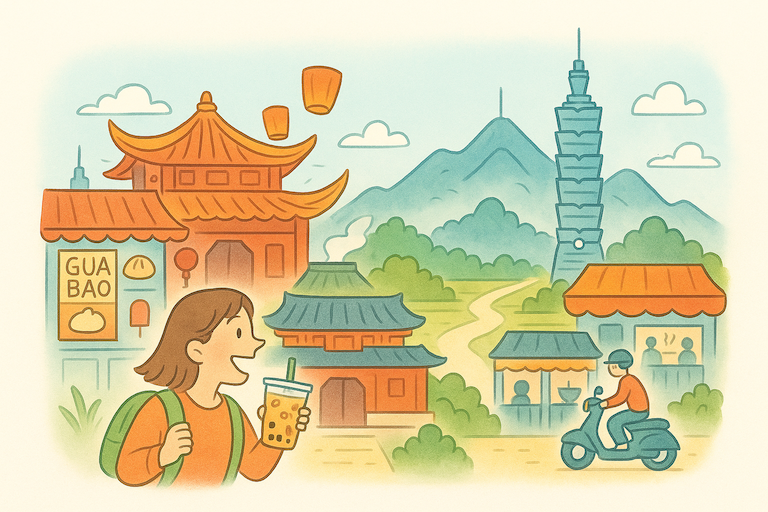
Learn about Taipei
AI is finding the best recommendations for you, it may take minutes...
8 of the best things to do in Taipei
Concise, updated list-style guide covering Taipei’s top sights (temples, night markets, Taipei 101, Elephant Mountain, museums) with practical tips for first-time visitors and eating recommendations.
The 13 Best Things to See and Do in Taipei in 2025
A traveller-oriented roundup of Taipei highlights including hot springs (Beitou), night markets, museums, food experiences and suggested tours and budgets aimed at independent travellers.
The Best Things to Do in Taipei, the Nature-Wrapped Heart of Taiwan
Feature-style guide blending culture, food and day-trip ideas (Taipei 101, Elephant Mountain, Jiufen, hot springs), plus notes on dining highlights and recent tourism developments.
12 Best Things to Do in Taipei: From Scenic Gondola Rides to Hot Spring Soaks
Practical activity-focused list with booking-friendly suggestions (Taipei 101 observatory, Maokong Gondola, Beitou hot springs, night markets) and tips on where to reserve tickets or tours.
A Travel Guide to Taipei, Taiwan’s Tantalizing Capital
In-depth blogger guide that highlights core Taipei attractions (National Palace Museum, Longshan Temple, night markets, Maokong), local food culture and neighbourhood-by-neighbourhood suggestions from a Taiwan-focused author.
Chiang Kai-shek Memorial Hall
Longshan Temple
Taipei 101
National Palace Museum
Elephant Mountain (Xiangshan) Trail
Night market food crawl (Shilin / Raohe / Ningxia)
Taipei 101 & Xinyi shopping and skyline view
Dihua Street & Dadaocheng cultural stroll
Beitou hot springs & public bathhouse experience
Yangmingshan national park short hike & seasonal flowers
AI is finding the best recommendations for you, it may take minutes...
